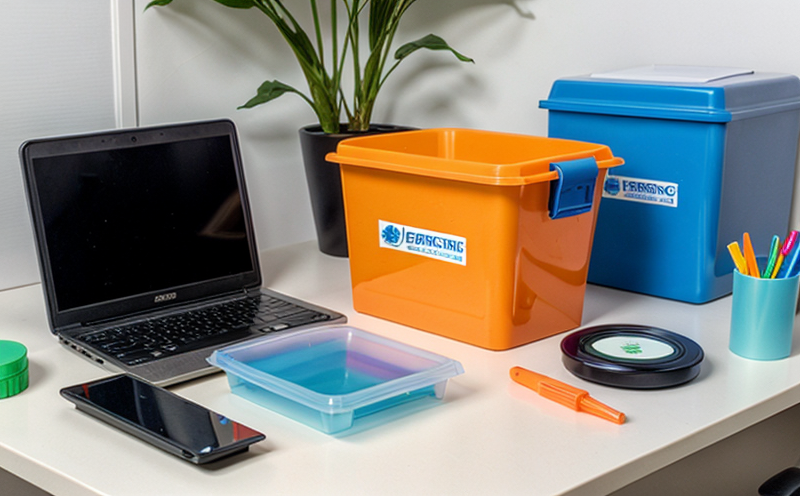NF EN ISO 178 Flexural Strength Testing of Office Plastics
The NF EN ISO 178 standard specifies the methods for determining flexural properties, including flexural strength and modulus of rupture. This testing is crucial in quality assurance processes to ensure that office plastics meet regulatory standards and perform satisfactorily under various stress conditions.
In the context of office plastics, flexural strength testing provides critical insights into how materials behave when subjected to bending loads. This property is particularly important for office-related products such as binders, folders, file cabinets, and other equipment that undergoes repeated mechanical stress during regular use. Understanding these properties helps in optimizing material selection, enhancing product durability, and improving overall customer satisfaction.
The testing procedure involves several key steps: first, the specimens are prepared according to specified dimensions detailed in NF EN ISO 178. The specimens must be free from defects and properly conditioned before testing begins. Once ready, they are placed onto a bending machine where they are subjected to progressively increasing loads until failure occurs.
The flexural strength is calculated as the maximum load per unit cross-sectional area that can be sustained by the specimen without fracture. This value provides valuable information about the material’s resistance against bending deformation and potential failure points under real-world conditions.
For accurate results, it is essential to use appropriate equipment tailored for this type of testing. Commonly used apparatus includes universal testing machines capable of applying precise controlled loads while monitoring displacement and force simultaneously. Additionally, environmental chambers may be required if temperature conditioning or humidity adjustments are necessary during specimen preparation or testing.
Understanding the flexural strength properties not only aids in meeting regulatory requirements but also enables manufacturers to innovate by developing more robust and efficient products tailored specifically for office environments. By adhering closely to NF EN ISO 178 guidelines, companies can ensure consistent quality across their entire product lines while maintaining compliance with international standards.
Furthermore, flexibility testing helps identify areas where improvements could be made regarding material composition or design modifications aimed at increasing longevity and performance metrics. It allows organizations to stay ahead of competitors by continuously refining their offerings based on rigorous scientific evaluation.
Scope and Methodology
| Step | Action | Details |
|---|---|---|
| 1. Specimen Preparation | Prepare specimens according to NF EN ISO 178 specifications. | Specimens should be free from defects and properly conditioned before testing begins. |
| 2. Conditioning | Condition specimens as required by the standard. | This may include temperature conditioning or humidity adjustments based on specific needs. |
| 3. Testing Setup | Set up bending machine and ensure alignment is correct. | The equipment should be properly calibrated to provide accurate readings throughout the test. |
| 4. Load Application | Apply loads progressively until specimen fails. | Monitor displacement, force, and other parameters closely during this phase. |
| 5. Data Collection | Record all relevant data points for analysis later on. | This includes maximum load applied before failure occurs along with any other pertinent measurements. |
| 6. Reporting Results | Analyze collected data and report findings accordingly. | The final report should include detailed descriptions of test procedures followed, raw data, calculated values like flexural strength, modulus of rupture, etc., and conclusions drawn from these results. |
This comprehensive approach ensures accurate measurement and interpretation of the flexural properties of office plastics. Compliance with NF EN ISO 178 guarantees consistent quality among products while facilitating informed decision-making processes within organizations involved in manufacturing or purchasing such materials.
Eurolab Advantages
At Eurolab, we specialize in providing top-tier laboratory services tailored to meet the unique needs of our clients across various sectors. When it comes to NF EN ISO 178 flexural strength testing for office plastics, here are some key advantages:
- Precision Instrumentation: Our state-of-the-art facilities house advanced equipment capable of delivering highly precise measurements essential for accurate results.
- Experienced Staff: Highly qualified technicians and engineers with extensive experience in performing this type of testing ensure reliable outcomes every time.
- Comprehensive Reports: In addition to numerical data, our reports offer detailed analyses explaining the significance of each result obtained during the test process.
- Regulatory Compliance: By adhering strictly to NF EN ISO 178 standards, we guarantee that all tests conducted are fully compliant with international regulations.
- Timely Turnaround: We strive to complete tests promptly without compromising on quality, ensuring timely delivery of results back to clients.
- Custom Solutions: For unique requirements not covered by existing standards, our team can design custom solutions that address specific client needs effectively.
With Eurolab's expertise and commitment to excellence in every aspect of our operations, you can rest assured knowing your testing will be conducted at the highest level possible. Whether you're looking for routine quality checks or one-off assessments, trust us to deliver exceptional service.
Competitive Advantage and Market Impact
By leveraging NF EN ISO 178 flexural strength testing services provided by Eurolab, organizations involved in the production and supply chain of office plastics can gain several competitive advantages:
- Informed Decision-Making: Accurate data helps companies make well-informed decisions about material choices, design modifications, and process improvements.
- Better Quality Control: Regular testing allows for continuous monitoring of product quality ensuring consistent performance across all manufactured items.
- Enhanced Reputation: Demonstrating adherence to international standards enhances brand reputation among customers who value reliability and consistency in their products.
- Avoidance of Non-Compliance Penalties: Ensuring compliance with relevant regulations prevents costly fines and potential business disruptions due to non-compliance issues.
- Increased Market Share: Superior product quality resulting from rigorous testing can attract more customers leading to increased market share over time.
The impact extends beyond individual companies; it contributes positively towards maintaining industry standards and fostering trust among stakeholders. By investing in these types of services, businesses contribute to the overall improvement of their sector's offerings.





